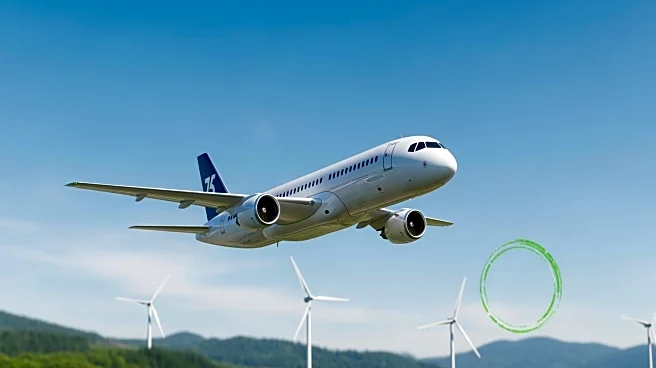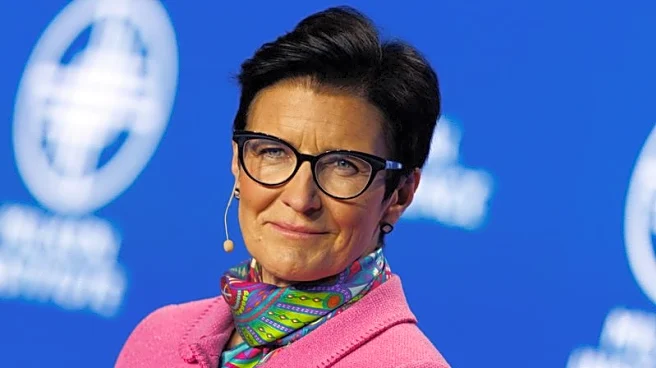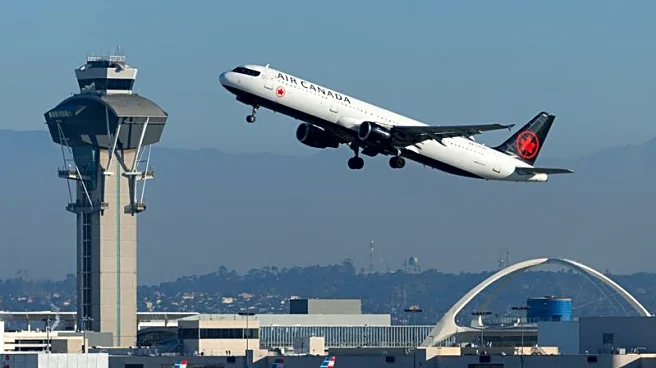What's Happening?
Norwegian Airlines is adjusting its network across Scandinavia following a successful summer season, focusing on capacity balance and expansion in Denmark and the Baltics. The airline carried 8.4 million
passengers in the third quarter of 2025, marking a 3% increase year-on-year. Norwegian is reducing capacity by 25% to 40% for the winter season to align with lower demand, while bookings remain strong. The airline is expanding its presence in Denmark with 10 new routes from Billund for summer 2026, and has won a Danish government tender to operate the Aalborg-Copenhagen route using aircraft with at least 40% sustainable aviation fuel. This initiative is expected to reduce CO2 emissions by 6,700 metric tons annually. Norwegian is also building a presence in the Baltic market with a new base at Riga Airport in Latvia.
Why It's Important?
Norwegian Airlines' strategic expansion and commitment to sustainable aviation fuel reflect broader industry trends towards environmental responsibility and market growth. The use of sustainable aviation fuel is a significant step in reducing the airline's carbon footprint, aligning with global efforts to combat climate change. The expansion into Denmark and the Baltics positions Norwegian to capture new markets and enhance its competitive edge. The airline's ability to balance capacity and adapt to seasonal demand demonstrates resilience and strategic foresight, crucial for navigating the evolving aviation landscape.
What's Next?
Norwegian Airlines' expansion plans in Denmark and the Baltics are likely to continue, with potential growth in other European markets. The successful implementation of sustainable aviation fuel on the Aalborg-Copenhagen route could pave the way for broader adoption across the airline's network. As Norwegian strengthens its presence in the Baltic region, it may explore further opportunities to expand its base at Riga Airport and increase its market share. The airline's focus on sustainability and strategic growth could influence industry standards and encourage other carriers to adopt similar practices.










